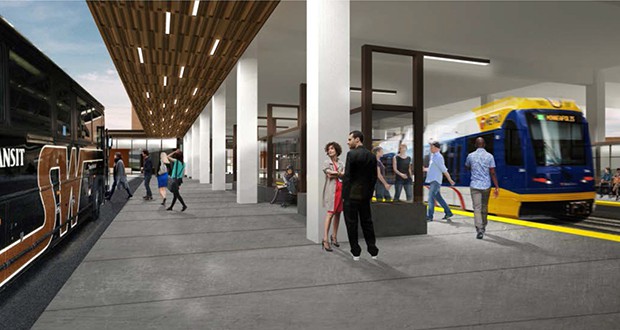
Southwest subcontractors get another shot at LRT work
The Met Council plans to issue a separate request for proposals for “council-controlled quality management services,” which were previously part of the civil construction package. Services include materials testing and other quality-control work.
That’s important because it allows more contractors to bid on the work, including the 36 subcontractors who were disqualified from the civil construction package because they worked on the project’s design phase.
“All interested contractors (subs) are welcome to submit a proposal for the QMS [quality management services] contract,” Met Council spokeswoman Laura Baenen said in an email Wednesday.
The original decision to disqualify the subcontractors irritated at least two construction industry groups, which said it reduces competition, increases project costs, violates federal guidelines and harms the construction industry.
Met Council Chair Alene Tchourumoff said in a statement Tuesday that the quality management services contract is similar to the Minnesota Department of Transportation’s quality management approach, and that it allows for more subcontractors to propose.
“These developments offer the opportunity for better project management and control while addressing some concerns raised by the contracting and engineering communities,” Tchourumoff said.
Tim Worke, CEO of the Associated General Contractors of Minnesota, said the change is “a good step” toward addressing contractors’ concerns.
“It clears up disagreements we had with the council to some degree. … It’s a positive development, but I’m not sure if it negates all our concerns at this point,” Worke said Wednesday.
The delay in bidding stems in part from the Federal Transit Administration’s recent finding that a proposed corridor protection wall between the Southwest tracks and freight railroad tracks in Minneapolis would “adversely affect” a historic railroad district, the Met Council said.
With that finding, the FTA requires a “supplemental environmental assessment” to consider potential environmental impacts and to allow time for “public review and comment,” the regional planning organization said. The Met Council will do a separate environmental review.
The bid extension is the latest in a series of delays in awarding the civil construction work, which includes everything from construction of stations and bridges to utilities and tunnels. Bids were initially scheduled to be opened last May.
In mid-August, the team of Burnsville-based Ames Construction and Plain, Wisconsin-based Kraemer North America submitted an apparent low bid of $796.517 million. Three other teams put in bids ranging from $807.888 million to $1.08 billion.
In September, the Met Council rejected bids from all four teams as too high or not responsive to bid documents because of subcontractor “eligibility issues.” Bids included subcontractors that had worked with the design contracts, and were thus ineligible to be part of the civil construction contract, Met Council officials said in September.
In Tuesday’s statement, the Met Council said it won’t know the cost impact of the delay until the bids are opened but that it will “work to manage any additional costs” once the contract is awarded.
Worke said Wednesday that the latest delay puts more cost pressure on the project because of construction inflation. The council has said that the corridor protection wall adds $20 million to the project.
“If their concern was cost the first time, I think it remains a concern with respect to the rebid,” Worke said.
The environmental work needs to be complete before the civil construction contract can be awarded. After the environmental work is finished, “we’ll have a more fully informed picture of the overall impact to the project’s schedule and its milestones,” the council said.

